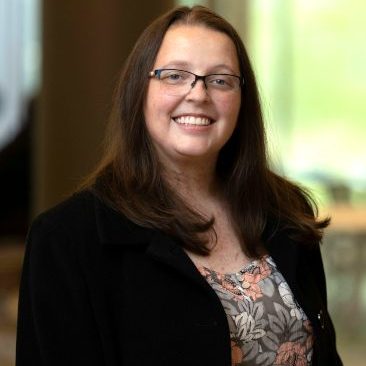The power of collaborative writing and peer feedback in doctoral writing groups

Dr Basil Cahusac de Caux
Contact details
Dr Basil Cahusac de Caux is an Associate Professor with a specialisation in the sociology of higher education, postgraduate research, and the sociology of language.

Dr Lynette Pretorius
Dr Lynette Pretorius is an award-winning educator and researcher specialising in doctoral education, AI literacy, research literacy, academic identity, and student wellbeing.
Have you ever wondered how doctoral students can navigate the challenging journey of academic writing? For many, the answer lies in the strength of community and the power of collaborative feedback. Our recent paper explores this very subject, examining how doctoral writing groups can transform the academic experience through peer feedback and collective learning.
Our study centres on a collaborative book project where doctoral students wrote and peer-reviewed each other’s chapters, ultimately producing a book titled Wellbeing in Doctoral Education: Insights and Guidance from the Student Experience. This project wasn’t just about writing; it was about creating a community of practice, where students learned together, shared experiences, and supported each other through the arduous process of academic writing. The concept of communities of practice is pivotal in understanding this study. These communities are formed by individuals who share a passion or concern for something they do, learning to do it better through regular interaction.
In the context of our specific doctoral writing groups, the shared domain was academic writing and publishing of the academic book, and the community was formed through mutual engagement and support. Participants were united by their commitment to improving their academic writing through peer feedback. This shared focus provided a common ground for all members, fostering a sense of belonging and purpose. Building a supportive community was crucial. The writing groups created a space where students felt safe to share their work, provide feedback, and discuss their challenges. This environment of trust and collegiality was essential for effective learning and personal growth. Through their interactions, the group developed a shared repertoire of resources, experiences, and practices. This included not just the technical aspects of writing but also the emotional and psychological support needed to thrive in academia. Participants learned from each other, gaining insights into different writing styles, feedback techniques, and academic expectations.
One of the most significant findings from our study was the transformative power of peer feedback. Participants found that receiving and giving feedback was instrumental in improving their writing. Feedback was not only about correcting mistakes but also about providing affirmation and recognising the potential and effort of the writers. This helped build confidence and self-esteem. Another powerful aspect of peer feedback was the opportunity to learn from others. This process helped participants identify their own mistakes and areas for improvement. By reviewing peers’ work, participants also gained new perspectives and ideas that they could apply to their own writing.
Our findings illustrate how peer feedback and collaborative practices within writing groups can significantly enhance the doctoral experience. Participants discovered that, despite their unique backgrounds and stories, they shared common challenges in their academic journeys. This realisation fostered a sense of community and mutual understanding. Our findings highlight the dual nature of the doctoral experience: each student has a unique narrative, yet their struggles and successes resonate with others. This shared experience of uncovering commonalities amidst diversity facilitated a deeper understanding and appreciation of one another’s viewpoints, thereby fostering a sense of community and collegiality within the group. This collective recognition of shared struggles also helped alleviate feelings of isolation and promoted a supportive environment. Our findings also emphasise the importance of reflective writing and feedback in promoting personal growth and academic development. Through sharing their stories, participants articulated and reshaped their identities in academia, which helped them navigate both personal and academic development.
Our study highlights the immense value of collaborative writing and peer feedback in doctoral education. By fostering a supportive community of practice, doctoral students can navigate the complexities of academic writing more effectively, develop their academic identities, and build the confidence needed to succeed in academia. This approach not only improves writing skills but also provides emotional and psychological support, making the doctoral journey a more enriching and less isolating experience.
The findings of our study have several important implications for doctoral education:
- Institutions should encourage the formation of writing groups and other collaborative learning opportunities to help doctoral students develop their writing skills and academic identities.
- Developing students’ ability to give and receive feedback is crucial. Our study shows that feedback literacy can significantly enhance the quality of academic writing and the overall learning experience.
- Creating a safe and supportive environment where students can share their work and experiences is essential for their personal and academic growth.
Taken together, our study shows that embracing the power of community and collaboration could be the key to transforming the doctoral experience, making it more supportive, inclusive, and ultimately, more successful for all students involved.
Questions to ponder
How do your emotions influence academic writing and reactions to feedback?
Are there hidden practices of publishing that should be discussed more openly?
How can academic institutions better support the formation of communities of practice among doctoral students?
What are some challenges that might arise in implementing peer feedback systems, and how can they be addressed?
In what ways can the process of giving and receiving feedback be made more effective and less emotionally taxing for students?


Thank you Lynette.
Peer feedback sysrems could involved using AI. Will need to get good prompting skills.
Yes, I definitely agree Pushpa. I already encourage the writing group students to integrate Grammarly into their browsers so that they can see its feedback in the docs they are writing/providing feedback on for the writing groups. We have also started talking about how they can use genAI to learn how to give more effective and constructive feedback.